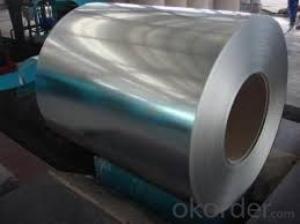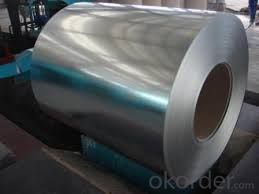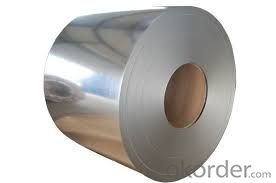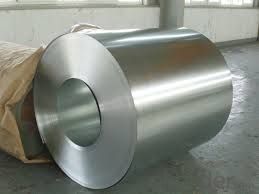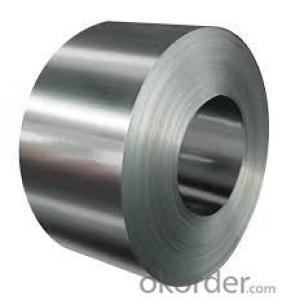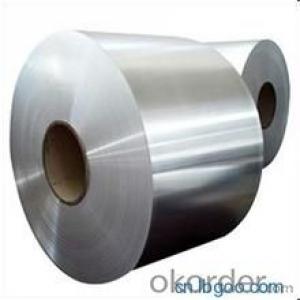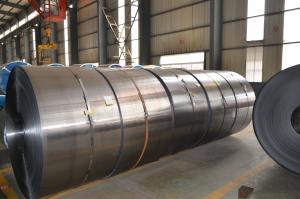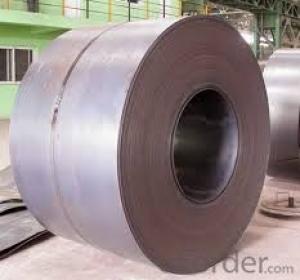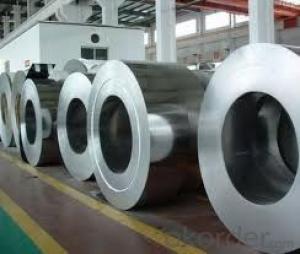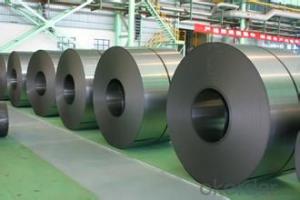Cold Rolled Steel/ Steel Rolled different size
- Loading Port:
- Shanghai
- Payment Terms:
- TT OR LC
- Min Order Qty:
- 20 m.t.
- Supply Capability:
- 10000 m.t./month
OKorder Service Pledge
OKorder Financial Service
You Might Also Like
Product Description
Brief Introduction
The Cold Rolled Steel is steel that has been worked below its recrystallization temperature by passing it between a pair of rollers. Recrystallization temperature is the temperature at which grains in the lattice structure of the metal have been rearranged, leaving it free of strain and deformations. The Cold Rolled Steel is pre-treated before being cold rolled with a process known as pickling, which uses strong acids to remove scale and other impurities. The Cold Rolled Steel is then passed through rollers to reduce its thickness. Most cold rolling takes place in multiple passes and as the size of the Cold Rolled Steel is further reduced, its strength and hardness both increase, but its ductility decreases. After cold rolling, heating the metal up in a process known as annealing can restore some of its ductility. The final Cold Rolled Steel may be manufactured in the form of sheets, strips, bars, or other forms.
Specification
1. Thickness: 0.4-2.0mm
2. Width: 900-1250mm
3. Inner Diameter: 508mm
4. Weight of Steel Coil: 3-15MT
5. Heat Treatment: Annealed
6. Margin Status: EC & EM
7. Surface Quality: FB&FC
8. Surface Status: SB & SD
9. Surface Treatment: Oiling
Mechanical Properties
1. Yield Strength: ≤ 320MPa
2. Tensile Strength: ≤ 370MPa
3. Elongation (L=50mm, b=25mm) When:
(1) Nominal Thickness<0.25mm: 30%
(2) Nominal Thickness 0.25mm-<0.40: 32%
(3) Nominal Thickness 0.40-<0.60mm: 34%
(4) Nominal Thickness 0.60-<1.0mm: 36%
(5) Nominal Thickness 1.0-<1.6mm: 37%
(6) Nominal Thickness >1.6mm: 38%
Packing
We use Seaworthy Package to make sure Cold Rolled Steel is well-protected during the long ocean voyage.
Application
1. Base metal for coated and dipped products.
2. Home appliance
3. Precise welding tube
4. Flux cored welding wire
5. Bicycle, battery shell,
6. Automobile fitting, hardware
7. Enameling industry etc.
Superiority
1. High precision of dimensional tolerance
2. Excellent mechanical property such as the yield strength and tensile strength, etc.
3. Being highly resistant to denting
4. Exhibits useful magnetic properties
5. High quality surface finish and get well prepared for the surface coating
6. Available in a variety of sizes and shapes with characteristics useful in a wide range of applications
Chemical Components
| Grade | Chemical Components | ||||
| C | Mn | P | S | Alt | |
| DC01 | ≤0.12 | ≤0.50 | ≤0.035 | ≤0.025 | ≥0.020 |
| DC03 | ≤0.10 | ≤0.45 | ≤0.030 | ≤0.025 | ≥0.020 |
| DC04 | ≤0.08 | ≤0.40 | ≤0.025 | ≤0.020 | ≥0.020 |
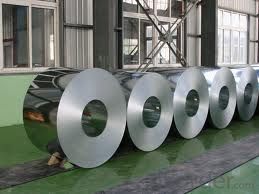
FAQ
1. Do you have QC team?
Yeah, sure, our QC team is very important, they will keep the quality control for our products.for quality inspection every day.
- Q: What are the different types of steel coil loading and unloading methods?
- There are several types of steel coil loading and unloading methods, including coil cradle loading, coil trailer loading, coil car loading, coil transfer by crane, and coil transfer by forklift. Each method has its own advantages and is used based on the specific requirements and capabilities of the loading and unloading equipment.
- Q: How are steel coils used in the production of metal containers?
- Due to their versatility and strength, steel coils find wide application in the production of metal containers. Each stage of manufacturing metal containers relies heavily on steel coils. To begin with, steel coils serve as the primary raw material for metal container production. These coils consist of high-quality steel that is rolled into a continuous sheet, ensuring consistent thickness and durability. Subsequently, this sheet is cut into specific widths and lengths according to the container size requirements. Once the desired dimensions are achieved, various techniques are employed to shape the steel coils into container form. Roll forming, for example, is a commonly used method where the steel coil passes through a series of roll dies that gradually shape it into the desired container shape. This technique allows for the creation of containers in different sizes and designs, ranging from cans and drums to large industrial containers. After the initial forming process, the steel coils undergo further processing to enhance their strength and durability. Heat treatment is one such process where the coils are exposed to high temperatures to increase their hardness and resistance to wear and tear. Additionally, annealing and quenching methods may be employed to improve the steel's properties. Once the containers are formed and processed, additional fabrication steps, such as welding or sealing, are carried out to ensure their structural integrity. Steel coils are frequently utilized in these processes as they provide a robust and dependable material for creating sturdy seams and joints. Finally, metal containers receive various coatings or treatments to protect them from rust, corrosion, and other environmental factors. Steel coils can be coated with materials like paint, epoxy, or zinc to enhance their resistance to these elements, ultimately ensuring the longevity of the containers. In conclusion, steel coils play a crucial role in the production of metal containers. They serve as the primary raw material, aid in forming, processing, and finishing, and provide the necessary strength, durability, and versatility required for manufacturing reliable metal containers across a range of industries.
- Q: What are the different coil coatings available for steel coils?
- Steel coils have a variety of coil coatings to choose from, each with its own unique benefits and characteristics. The industry commonly uses the following coil coatings: 1. Polyester coil coatings: These coatings are widely utilized because of their exceptional durability and resistance to fading, scratching, and corrosion. They offer good UV resistance and are available in a wide array of colors. 2. Polyvinylidene fluoride (PVDF) coatings: PVDF coatings are renowned for their outstanding resistance to weathering and UV radiation. They provide excellent color and gloss retention, as well as overall durability, making them ideal for outdoor applications. 3. Polyurethane coil coatings: These coatings offer a high level of flexibility and abrasion resistance. They have excellent chemical resistance and are often employed in industries such as automotive and appliances. 4. Silicone modified polyester (SMP) coatings: SMP coatings are known for their resistance to fading, chalking, and cracking. They provide exceptional weather resistance and are commonly used in architectural applications. 5. Epoxy coil coatings: Epoxy coatings are recognized for their remarkable adhesion and chemical resistance. They are frequently utilized in demanding environments like automotive parts and appliances. 6. Plastisol coatings: Plastisol coatings, which are PVC-based, form a thick and flexible film on the surface of the steel coil. They offer excellent corrosion resistance and are commonly used in the construction industry. These examples illustrate the range of coil coatings available for steel coils. The choice of coating depends on factors such as the intended application, environmental conditions, desired appearance, and required performance characteristics. Seeking advice from a coil coating specialist can help determine the most suitable coating for a specific project.
- Q: Several reading methods of steel tape measure
- Indirect reading methodIn some parts of the steel tape can not be used directly, can use the ruler or ruler, the zero alignment measurement, ruler and measurement direction; steel tape measure distance to a whole scale ruler or ruler, with more than a long reading amount. (3).Some errors in measuring steel tape
- Q: How are steel coils used in the production of steel containers?
- Steel containers rely heavily on steel coils as a vital component in their production. These coils, made from flat-rolled steel, serve as the foundation for the container's main body. To start the process, the steel coils are unwound and fed into a rolling mill. Here, they undergo a sequence of procedures to shape and mold the steel. One of these steps involves heating the coils to a specific temperature, making them more malleable and easier to manipulate. Subsequently, the hot coils pass through a series of rollers that gradually reduce their thickness and elongate them to the desired size. This entire procedure is referred to as hot rolling. Once the steel coils have been rolled to the necessary thickness, they are then cooled and transformed into sheets. These sheets are further treated to eliminate any imperfections or irregularities, guaranteeing a smooth and even surface. This is accomplished through processes like pickling, where acid is used to remove any scale or rust, and cold rolling, where the sheets are passed through rollers at room temperature to achieve the desired thickness and surface finish. After the sheets have been cleaned and refined, they are molded into the shape of the container. This typically involves a technique known as stamping, in which hydraulic presses are used to press the steel sheets into a mold. The mold determines the container's shape and size, and the steel sheets are pressed against it with great force, resulting in the desired container shape. Once the containers have been formed, they undergo several finishing processes, including welding, painting, and coating. These processes are carried out to enhance the containers' durability, appearance, and resistance to corrosion. These final touches ensure that the steel containers meet the necessary standards and are of high quality for their intended use. In conclusion, steel coils are of paramount importance in the manufacturing of steel containers, as they provide the raw material needed for their production. Through a series of steps, the steel coils are shaped, cut, and formed into sheets, which are then further processed and molded into the desired container shape. The outcome is a robust and dependable steel container suitable for various applications across industries.
- Q: I Don't have a Oxy act. torch but can Get a Propane one. The finished part(s) are .375 x .550 x .185
- *Hardening: okorder /... AISI 12L14 : Category :Steel Class :Carbon steel Type :Standard resulfurized and rephosphorized Common Names :Lead steel Designations: Germany: DIN 1.0718 Italy: UNI 9 SMnPb 23 Japan: JIS SUM 22 L , JIS SUM 24 L Sweden: SS 1914 United States: ASTM A108 , ASTM A29 , SAE J403 , SAE J412 , SAE J414 , UNS G12144 Composition : Element / Weight % C / 0.15 (max) Mn / 0.85-1.15 P / 0.04-0.09 S / 0.26-0.35 Pb / 0.15-0.35 Mechanical Properties : Properties / Conditions / T (°C) /Treatment Density (×1000 kg/m3) 7.7-8.03 / 25 Poisson's Ratio 0.27-0.30 /25 Elastic Modulus (GPa) 190-210 / 25 Tensile Strength (Mpa) 540 / 25 /cold drawn (round bar (19-38 mm)) Yield Strength (Mpa) /415 Elongation (%) /10 Reduction in Area (%) /35 Hardness (HB) 163 /25 /cold drawn (round bar (19-38 mm)) *Rod- 12L14 Case Hardened to Rockwell C 58-62 Case Depth .060 Sleeve - 12L14 Case Hardened to Rockwell C 58-62 Case Depth .060 Blade - 12L14 Case Hardened to Rockwell C 58-62 Case Depth .030 Quantity 5000 Rods: Weight per piece .8 ounce (Total 250 pounds) 5000 Sleeves: Weight per piece 1.8 ounce (Total 563 Pounds) 5000 Blades: Weight per piece .3 ounce (94 pounds) Total weight of RFQ 907 pounds 12L14 Steel.
- Q: I am doing a experiment on mild steel soaked in sodium chlorideanyone can enlighten me about the effect of the sodium chloride in engineering term ?The mild steel specimen which I soaked in the sodium chloride has orange rust on it
- The mild steel contains a lot of Iron. The NaCl solution quickly attacks the iron content and forms rust. Over time, the solution may also cause what is called 'Chloride Cracking' of the steel. Pitting corrosion of stainless steel due to chlorides would certainly produce a rust-colored product. Passivation can be used to maintain a good corrosion resistant surface of stainless steel process vessel. There are many commercial products for this purpose. In the pharmaceutical industry, this process is often called derouging, that is to remove the buildup of iron oxides on the stainless steel process surfaces
- Q: How do steel coil manufacturers ensure fair pricing?
- Various measures are taken by steel coil manufacturers to ensure fair pricing. To begin with, extensive market research is conducted to understand the current trends in the industry, the dynamics of supply and demand, and the pricing strategies of competitors. This information helps them determine a pricing strategy that is both competitive and fair, in line with market standards. In addition, the cost of raw materials, production, and operational expenses are carefully considered in order to establish a reasonable base price. The manufacturers also take into account economies of scale, as larger production volumes can result in lower costs per unit. Furthermore, steel coil manufacturers often establish long-term partnerships with suppliers to guarantee a stable and consistent supply of raw materials at fair prices. This allows them to maintain a reasonable cost structure and minimize fluctuations in pricing. Moreover, these manufacturers prioritize transparency in pricing by providing detailed quotations that break down the cost components. This enables customers to understand the factors contributing to the final price and ensures fairness in the pricing process. To further promote fairness, steel coil manufacturers take into account the specific requirements of each customer. They may offer customized pricing based on factors such as order volume, delivery timelines, and value-added services. This approach ensures that each customer receives a price that is tailored to their unique needs and requirements. Overall, steel coil manufacturers employ market research, cost considerations, transparent pricing practices, and customized pricing options to ensure fair pricing. Their goal is to create a pricing environment that is fair and mutually beneficial for both themselves and their customers.
- Q: Hey I just got a mini 14 manufactured in 1980. I also had some .223 Wolf steel cased HP rounds (about 200) that i could shoot throught it, but I was just wondering if its a bad idea to use this steel cased ammo...? Only the casing is steel i believe... and the bullet is copper jacketedthanks for your help
- I have used wolf steel cased ammunition as well when I borrowed my friend's AR-15. It's good ammunition and I personally have not experienced a stovepipe or a jam with the ammunition. A Mini 14 is a great .223 civilian rifle made by Ruger and should not jam with the ammunition. If the polymer coating really is a problem sometimes, just don't use it with knockoff AR-15s or Mini-14s but stick with the major manufacturers.
- Q: Can steel coils be coated with barcodes?
- Yes, steel coils can be coated with barcodes. Barcodes can be printed or attached onto the surface of steel coils, allowing for easy identification, tracking, and inventory management.
Send your message to us
Cold Rolled Steel/ Steel Rolled different size
- Loading Port:
- Shanghai
- Payment Terms:
- TT OR LC
- Min Order Qty:
- 20 m.t.
- Supply Capability:
- 10000 m.t./month
OKorder Service Pledge
OKorder Financial Service
Similar products
Hot products
Hot Searches
Related keywords
